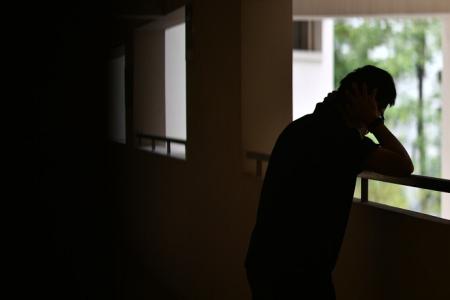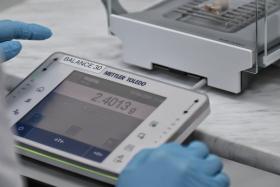Programme to help youth with unexplained ailments
The 14-year-old boy had been suffering from heart palpitations and stomach aches for a few months since mid-2023.
Despite multiple visits to general practitioners and to KK Women’s and Children’s Hospital (KKH) Children’s Emergency (CE), doctors could not find any serious medical issues to explain the symptoms.
In late 2023, when the youth, who had a troubled background, was taken to the CE once again, he was sullen, reticent and refused to communicate with medical staff.
But Mr Muhammad Arsyad Suwandi, a youth connect associate under KKH’s medical social work department, spent two hours with him, breaking down his walls and getting him to open up about his life.
That led to a revelation – the boy’s ailments were unlikely to be due to a physical cause.
It turned out that he was due to appear in court, and his symptoms had appeared when he found out the date of the court hearing. “He started getting physical symptoms because he was nervous,” said Mr Arsyad.
While the youth was admitted to the hospital for further testing, Mr Arsyad worked with the residential home the boy was from to get him psychological support.
“I help youth piece together what is going on in their lives, and educate them about the mind-body connection – which is the idea that someone’s thoughts and feelings can impact how they feel physically,” said Mr Arsyad.
The youth is one of more than 2,800 patients between the ages of 10 and 18 screened at KKH’s CE since October 2022 under the Temasek Foundation Youth Connect Programme.
Funded by KKH, the three-year pilot is also supported by Temasek Foundation, which contributed about $1.8 million.
The programme aims to go deeper into the root causes of the young people’s unexplained symptoms by screening them for sources of mental distress. These can include emotional distress and social stressors such as academic pressure, home conflicts, cyber bullying or friendship problems.
After evaluating a patient clinically, doctors who suspect that he may be facing mental health stressors will ask him to fill up a well-being questionnaire. The questionnaire was designed by psychologists and social workers to be neutral and non-stigmatising.
The parents are given a separate questionnaire to get more insight about the child’s life and family circumstances.
After screening, young people who need help are supported by youth connection associates, whose role is to conduct well-being evaluations, offer guidance and connect them with community support resources.
Those who face more serious issues, like family violence or sexual assault, are referred to medical social workers.
Dr Angelina Ang, senior consultant at KKH’s department of emergency medicine, said that since its inception, the programme has evaluated 110 patients each month.
Among those screened, an average of 43 per month received support from youth connect associates, while an average of 22 per month were referred to medical social workers.
Dr Ang, who has been in emergency medicine for 28 years, said the impetus for the programme was rising concern about the youth mental health crisis.
At KKH’s CE, which sees an average of 15,000 patients per month, about 12 per cent of visits from 10- to 18-year-olds involve complaints of headaches, abdominal pain, chest pain or dizziness, with no serious medical causes found.
While mental stress can cause physical symptoms, also known as psychosomatic symptoms, a KKH study found that fewer than 10 per cent of emergency department physicians consider such causes for medically unexplained symptoms.
“If I see a child with a headache, I have to get their clinical history and make sure it’s not due to a brain tumour or brain infection. If I also ask them about their school and family situation, it will take a very long time in the emergency department,” said Dr Ang.
Adolescents also may not be aware that their symptoms could be psychosomatic, and lack the maturity to understand their emotions, adding to the doctors’ difficulty in coming to a diagnosis.
“In a crowded, small consultation room, it’s not so conducive for a young person to be disclosing all these difficulties, especially if they may be stigmatising,” Dr Ang said.
Hence, with the support of the youth connect associates, doctors can avoid prescribing unnecessary medical treatment for such symptoms.
“Over-medicalisation has a huge healthcare cost, because we will investigate by doing extension tests and scans. We might also do scopes, which can be very invasive. But then the scans come out normal. So that tells you that we are not addressing the root issues, and that may actually be something that’s in the child’s life that can only be solved by social and community support,” said Dr Ang.
“There are psychological and social determinants of health, and if we don’t solve them, these patients will be our ‘frequent fliers’ and keep coming back again and again,” she added.
Mr Kee Kirk Chuen, head of health and well-being at Temasek Foundation, said the pilot hopes to encourage a model where medical and psychological factors are considered together for better diagnoses and treatment.
It is designed not just as a standalone initiative, but also as a potential model for broader adoption across other specialities and hospitals in Singapore.
“The lessons from this programme could help inform similar integrated approaches in other medical settings and for more patient groups,” said Mr Kee.
Eighteen-year-old Amelia, who declined to give her real name, was referred to the programme in July 2024 as she was being seen at KKH for a genetic condition.
The Institute of Technical Education (ITE) student had also struggled with social anxiety her entire life, finding it particularly hard to adjust to new people and environments.
Although she was referred to a psychologist in 2019 and was coping better for a few years, the stress of having to secure an internship in order to pass her ITE course got to her in April 2024. She broke down during a job interview.
“They asked me who my biggest inspiration was, and I said ‘my mum’, and started crying. I didn’t want to cry but the anxiety had been building up,” she said, adding that she had almost wanted to quit school because she thought she could not get an internship.
While Amelia wanted to try medication, her mother, who wanted to be known only as Diana, was reluctant, fearing that she would become addicted. Amelia’s school also did not know about her mental health condition, as Diana feared her child would be ostracised.
After the teen was referred to the programme, Mr Arsyad reached out to Diana to discuss her fears and assure her that telling the school and getting medication could help Amelia in the long run. With the support, Amelia is now doing better.
“The conversation really helped in my decision-making process, because I was talking to people who are knowledgeable, instead of just reading online or discussing with my friends,” said Diana.
Get The New Paper on your phone with the free TNP app. Download from the Apple App Store or Google Play Store now


